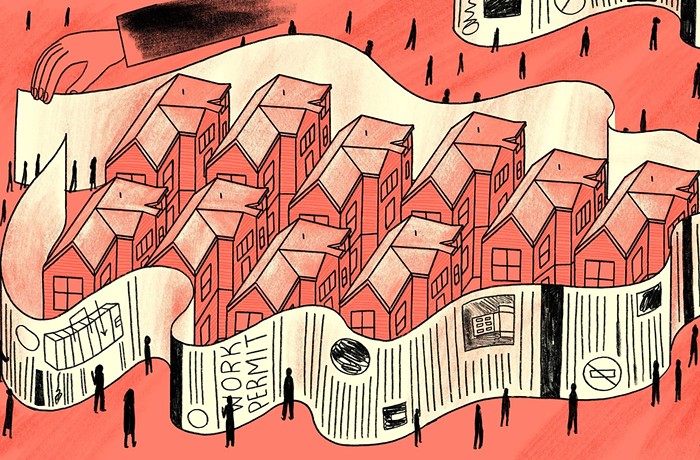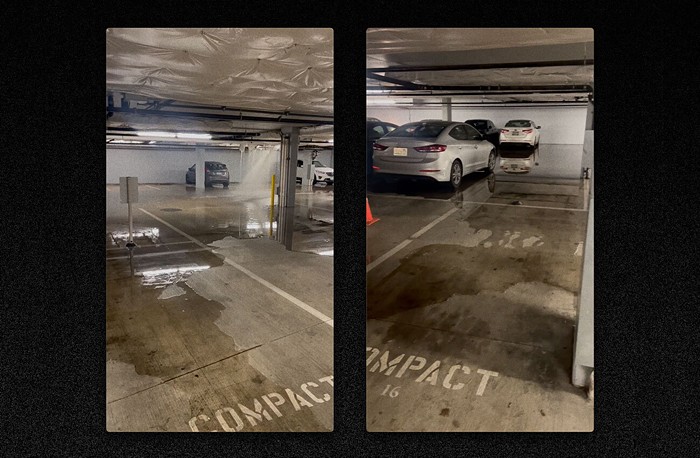For a variety of reasons, homes go vacant. Landlords evict renters. Artists and service workers get priced out. Mortgage companies foreclose on people with disabilities and seniors, and the multinational firms that take possession of their former houses often let them sit empty to accrue value. In a state where marijuana is legal, Black and brown merchants in the drug trade are still disproportionately incarcerated. And people expire–in accidents with cars, as victims of gun violence, in “suicides of despair,” or because of one pandemic or another.
While vacant homes embody the many challenges facing Washington state, they also present an opportunity: our cities should use empty homes as a revenue source to rebuild thriving neighborhoods.
With 770,000 residents, Seattle is the largest city in Washington. This year, a $140 million budgetary shortfall prompted Mayor Bruce Harrell to propose shifting funds from the “JumpStart” business tax to repair the revenue situation. Harrell’s move would mean less money for affordable housing projects, less money for Seattle Green New Deal spending, lessened financial assistance to immigrants and refugees, and less funding for public services that the JumpStart tax funded.
At the press conference where Harrell announced his proposal, a lingering question went unaddressed: Would the City consider an additional revenue source to prevent taking money from programs that people depend on?
The idea of taxing empty homes isn’t new. In 2018, a Seattle City Council task force identified an empty homes levy as a funding source to address homelessness. That year, Oakland began charging a $6,000 flat tax on vacant residencies, with crucial exemptions for nonprofit housing providers and units under active construction for new tenants. The “Prop M” campaign on the November 2022 ballot in San Francisco proposes a fine on barren apartments to pay for rental subsidies for low-income residents and for new public housing.
Seattle has 12,000 people experiencing houselessness; in 2021, it had 33,100 vacant homes. The blanket application of Oakland’s $6,000 vacancy fee would generate tens of millions of dollars in revenue, helping to fill Seattle’s current shortfall while safeguarding the city against future downturns. The solution is achievable. But to act, Seattle has to reckon with local opposition to economic fairness. Progressives believe that additional government spending can reduce human suffering within city limits–not everyone agrees.
Though Mayor Harrell has big plans for how to use business tax revenues, he opposed collecting business tax revenue to end homelessness when he was a Seattle City Councilmember. A current Seattle council member once called the JumpStart tax the “Bellevue Relocation Act,” echoing the common refrain that new taxes would compel mega-corporations to move to Seattle’s sibling city across Lake Washington. Faced with a levy on unoccupied housing units, the argument falls apart. Wherever they’re headquartered, real estate firms are anchored in Seattle by their apartments, by their homes, by their tiny apartments and condos. They aren’t going anywhere.
As it turns out, Bellevue has considered a business tax of its own to fix its Swiss cheese budget; the city faces a projected $100 million deficit in the next five years. After doling out $1.4 billion worth of construction permits in 2021, Bellevue has an estimated 3,600 empty homes. All that a vacancy tax would “relocate” there is lost revenue.
Puget Sound cities aren’t the only ones struggling to balance their budgets. Spokane is facing a potential $30 million revenue hole, and it has an estimated 4,500 empty domiciles. The City has recently set the pace for housing policy in Washington state, passing comprehensive zoning reform that will help undo urban segregation by legalizing the construction of apartments throughout the city. An empty homes levy in Spokane could help ensure that the benefits of new residential construction are distributed equally, with more money to pay for social services and affordable housing.
When cities can’t pay their bills, everyday people and their governments have to make hard choices. An anticipated budgetary shortfall in the next Washington state budget could mean decreased access to benefits through cash assistance programs such as Temporary Assistance for Needy Families. It could mean kicking people out of the Housing and Essential Needs program. It could mean fluctuating state spending on food benefits, and reducing the amount we spend on financial assistance to refugees. To make sure none of that happens, the State Legislature ought to consider imposing its own statewide empty homes tax.
Per 2020 census data, Washington state has over 255,000 vacant residential units. Many of these places are in the process of being rented out or resold; many aren’t. The Legislature could exact a graduated empty homes tax that escalates the fee in proportion to the total number of units a realty holds statewide, and exempts them if they rent out those units at a discount.
The bill that levies this tax could also expand Washington state’s power of eminent domain to take into public ownership housing units that have been unoccupied for extended periods, and then use the state’s Housing and Essential Needs program to rent them out itself. If the private market isn’t doing enough to house Washingtonians in need of housing, then the public can rally to rebuild communities that have been hollowed out.
Washington’s urban areas are unwell. Its largest cities are facing revenue crises, threatening the services that government can extend at a time when people need help the most. After three years of being hemmed in by a deadly pandemic, city-dwellers are realizing how public funding can grow and protect the rare combination of thriving neighborhoods and outdoor space that defines life in the Pacific Northwest. For example, to the new Move Ahead transportation package passed by the Legislature in 2022, scores of cities in both “blue” and “red” areas have submitted a combined $457 million in applications for local pedestrian and biking improvements.
While houseless Washingtonians seek shelter in parks and greenways, homes with nobody in them are symptomatic of communities in need of care. A creeping vacancy–physical, if not spiritual–is befalling towns that should be bustling.
A solution resides in unoccupied homes. Our cities can run on empty.
Shaun Scott is the policy and field campaign manager at the Statewide Poverty Action Network. He is the author of the forthcoming book Heartbreak City: Sports and the Progressive Movement in Urban America (University of Washington Press, 2023).



















